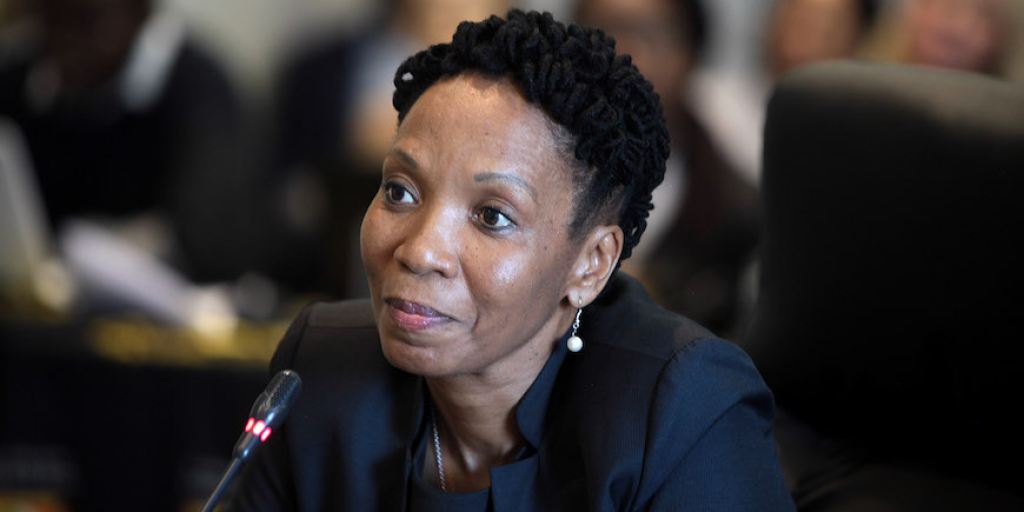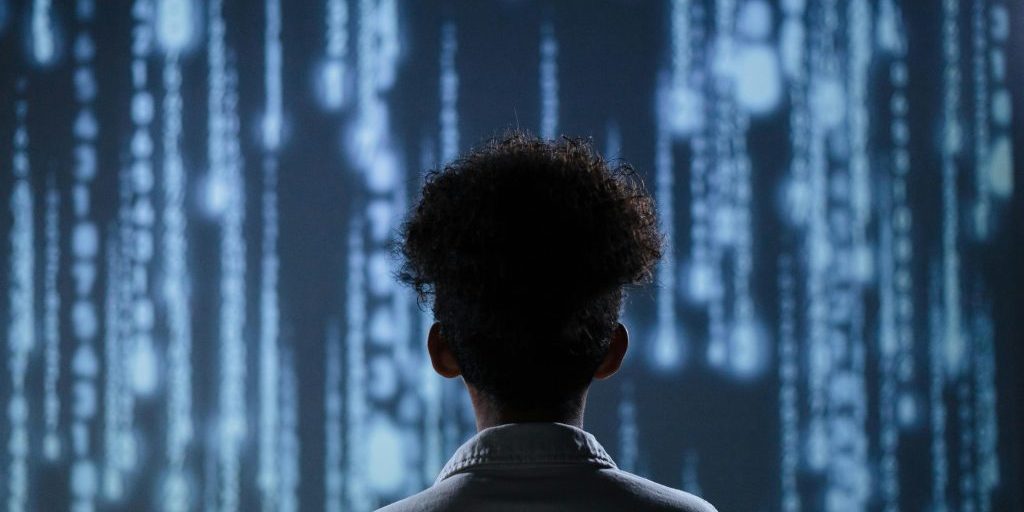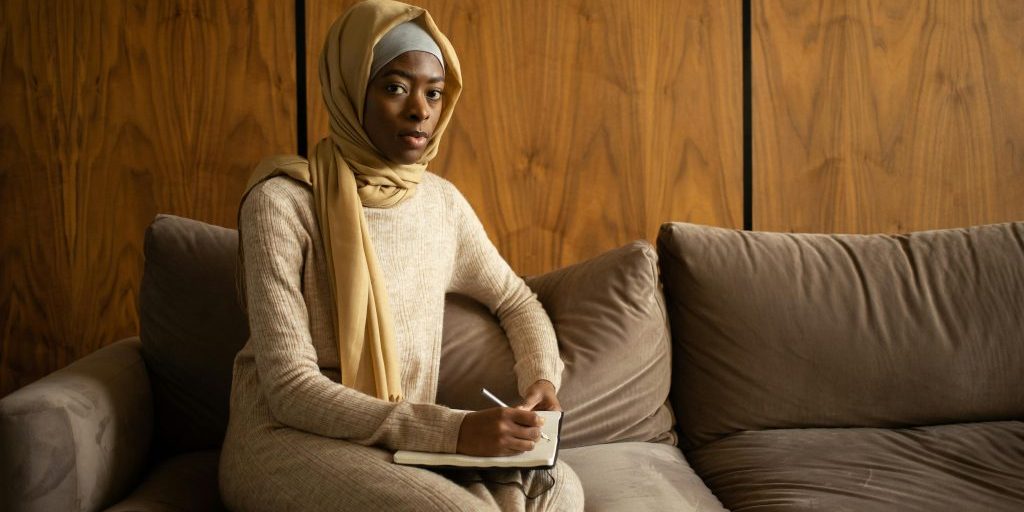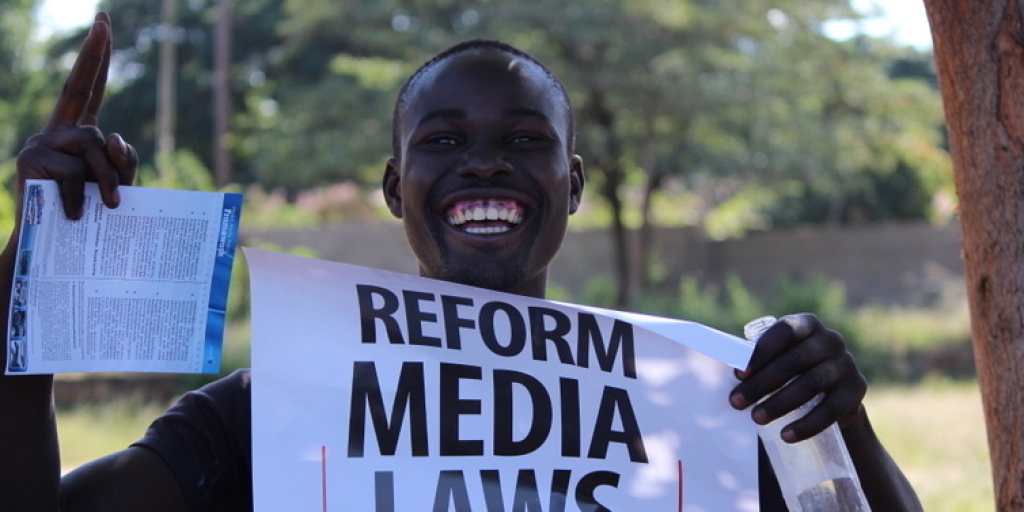‘The judiciary is fully committed to its role in supporting media freedom’
PICTURE: Justice Mahube Betty Molemela (Judges Matter)
Keynote address at the South African National Editors’ Forum Conference
President of the Supreme Court of Appeal
It is a profound honour to stand before you this evening as you celebrate 30 years of democracy and media freedom in South Africa.
I have been requested to say a few words on ‘Challenges in the Digital Age to Media Freedom and the Judiciary’.
I stand here as a substitute for the Chief Justice, who could unfortunately not accept your invitation to be the keynote speaker on account of the exigencies of her office at this point in time.
I must confess that although I have previously made speeches on a variety of topics, I am filled with a measure of trepidation because the audience largely consists of members of the media. I have always shied away from the media, largely because back in the day, as youngsters, our teachers used to caution us that ‘the media will make you and then break you’, so obviously I wanted none of that.
But of course, I could not refuse when my boss (and I say this fondly) requested me to do the honours. So apprehensive or not, here I am.
I must, as I usually do, start this speech with what I call a ‘disclaimer’, and it is this: from my point of view, asking a judge in active service to give a keynote address may sometimes be a disservice to an audience because he/she may not meet the expectation of the audience.
Since judges are known to squarely deal with issues raised in their cases and mince no words when doing so (I mean, in the text of our judgments we really call a spade a spade), the expectation might be that a judge would not, in the course of giving a keynote address, pull any punches in giving an opinion on topical issues.
This does not mean that we as judges do not have personal views. Of course we do, because in the course of executing our jobs, we hear things, we see things, but some of them cannot be mentioned in our judgments simply because they were not legitimately brought to our attention in compliance with the constitutional imperative of a fair trial.
Under those circumstances, we bite our tongues and wait for the right case with the right facts and evidence, before we can formally express ourselves on the issues raised.
This is simply because the judiciary is reactive, by its very nature.
As I see it, our judicial code of conduct does not allow judges a lot of room to manoeuvre in relation to what they can say ‘off the bench’, as it were. So, depending on the circumstances, when we are invited as keynote speakers, we end up erring on the side of caution by saying less than what we otherwise would, with the attendant risk of merely stating the obvious.
There is a view that the judiciary should be ‘ring-fenced or quarantined from conflicts’ and refrain from being involved in controversies through extra-curial statements made by Judges, except in relation to proven facts which are already in the public domain.
I subscribe to this cautious approach, even though I am aware that journalists have divergent views regarding the circumstances under which judges may safely make extra-curial statements; I guess the jury is still out on that aspect.
I know that was quite a long preamble, but it needed to be put forward, in my view.
Ladies and gentlemen, I am aware that the relationship between the media and the judiciary and the interdependence of these two institutions is an aspect that was comprehensively traversed on this platform last year. I will therefore not cover the same ground, save to acknowledge that without an independent judiciary and media, our democracy would probably collapse.
Today, the theme of this auspicious event is ‘Thirty years of democracy: a journey of freedom and the unyielding power of the media in South Africa’. Even in moments like these, when we can pat ourselves on the back for what media freedom has achieved for our country in the past 30 years, we still remember the tyranny that preceded this freedom, and rightly so, for it is these sad memories that make us appreciate the true value of media freedom.
So, allow me to go back in time for a bit.
We remember a time, before 1994, when accurate and truthful information about the state of our country was not as accessible as it is today, and how media crackdowns and calculated propaganda were the norm. We recall how attempts at disseminating accurate information regarding abuses of power, inequality and the atrocities that a significant part of our nation was subjected to, were met with swift crackdowns.
We remember Donald Woods and Steve Biko, and how these two anti-apartheid activists were targeted by the apartheid government, tragically leading to Biko’s death and Woods being banned from reporting and later having to flee the country, rightly acknowledging that that there are many more journalists and activists who suffered similar and worse fates.
We recall how having access to accurate information and sharing it displaced people, resulted in detentions without trial and had deadly consequences with impunity. But despite the apartheid government’s best efforts to eradicate the journalistic efforts of those activists, the information still reached the target audience in one way or another
We remember the time when the dissemination of truthful and accurate information would lead to the banning of publications.
Yes, there was a time when media freedom was merely a dream that existed alongside our dream for freedom from all other forms of oppression, and a deep yearning for a democracy.
Today, we live in a country in which media freedom is, by all accounts, jealously guarded. Given our history, we can indeed attest to how a free press (press used in the loose sense) is a vital tool to the sustenance of democracy. What an arduous journey it has been to get where we are today, and how privileged we are to live in a country in which freedom of expression is enshrined in its Constitution.
Section 16(1) of the Constitution provides that, Everyone has the right to freedom of expression, which includes:
- freedom of the press and other media
- freedom to receive or impart information or ideas
- freedom of artistic creativity, and
- academic freedom and freedom of scientific research
In the context of the media, freedom of expression seeks to balance the rights of reporters and those being reported on so as to ensure continued access to accurate information for all. This means that journalists must present news in context, ensuring balanced reporting that contains no distortion and exaggeration. In particular, they must give all sides of a story a fair hearing.
This is what ethical journalism dictates.
I cannot overemphasise the importance of hearing both sides of the story. This principle is so sacred. Based on my reading of the Bible, I know at least two examples of how God was prepared to hear the other side of the story in circumstances when He obviously, already knew the answers.
In the first chapter, it is stated that after Cain had killed his brother, Abel, God still asked him where his brother was; and even when he knew that Adam and Eve had eaten the forbidden fruit, He still asked them why they were hiding.
It is also of significance that, beyond the religious realm, long before the advent of the Constitution, our law recognized the audi alteram partem rule (i.e. ‘listen to the other side’) as one of the primary principles of natural justice.
As to whether this principle was always applied by our courts in the past is a debate for another day.
We are truly privileged to have a Constitution that discourages propaganda, incitement of violence and any attempts to promote hate-centred advocacy based on race, ethnicity, gender or religion that constitutes the incitement to cause harm.
In Khumalo and Others v Holomisa, the Constitutional Court described the right to freedom of expression as follows: ‘The right to freedom of expression is integral to a democratic society for many reasons.’
‘It is constitutive of the dignity and autonomy of human beings. Moreover, without it, the ability of citizens to make responsible political decisions and to participate effectively in public life would be stifled.’
Over the years, we have had to move with the times. Alas, with the advent of the digital age, a fly landed in the ointment. In this modern era, we face a new challenge, the social media terror of misinformation, disinformation, propaganda and threats for speaking up.
The courts’ acute awareness of the shift that came with the dissemination of information in the digital age was captured as follows in Van Breda v Media24 Limited and Others and National Director of Public Prosecutions v Media24 Limited and Others.
For, even as we grapple with television in the courtroom, there are many (particularly younger viewers) who are increasingly turning to the internet to keep up to date with news and current affairs. Many people now use social media as their main source of information, resulting in a shift in how information is disseminated and received.
As [the Right Honourable B McLachlin PC, the Chief Justice of Canada] observed: ‘The explosive growth of new media signals a shift in who reports on legal proceedings.’
‘Court decisions may no longer be the preserve of trained professional journalists. Anyone with a keyboard and access to a blog can now be a reporter. And who is to say they are not? Some bloggers will be professionals and academics providing thoughtful commentary and analysis. Others will fall short of basic journalistic standards’
‘Will accuracy and fairness be casualties of the social media era?
‘What will be the consequences for public understanding of the administration of justice and confidence in the judiciary?
‘How can a medium such as [X] inform the public accurately or adequately in 140 characters or less?
‘If witness or juror contamination is a concern with television, is it not even more so with ubiquitous social media accessed or received automatically via a hand-held device?’
It is indisputable that the abundance of data in the online space, which has increased exponentially due to algorithm-based technologies, poses serious risks to privacy. Indeed, the reality is that a click of a button potentially makes us vulnerable to misinformation and disinformation.
This brings to mind a statement attributed to Winston Churchill, which still rings true today, that ‘a lie gets halfway around the world before the truth has a chance to get its pants on’.
Misinformation and disinformation are so easily disseminated in the digital space that no matter how strong our Constitutional safeguards may be, we may still fall prey to the snares of propagandists who seek to undermine the bill of rights that constitute the fruits of our hard-won democracy.
An example that comes to mind is ‘fake news’ on social media platforms. It is concerning to see the ease with which falsehoods are circulated on social media platforms without any real consequences.
Lately, we have seen an increase in AI-generated deepfake content. Fake news is worrisome, to the say the least, because it has the propensity to threaten not only the very essence of media freedom, but to reverse the gains that were made in respect of the right to privacy, which in turn impacts the enjoyment of all other freedoms enshrined in our Constitution.
In her book, The Smear, which was authored in 2017, Sharyl Attkison, an American journalist, alludes to some of the digital age challenges that allegedly bedevilled previous election campaigns in America. She says the following in relation to how social media can be used for ulterior motives:
‘As social media has become an unavoidable part of modern life, it’s proven the perfect conduit for mass astroturf campaigns. But in truth, astroturf has been a part of the smear playbook for years. Plainly speaking, astroturf is when political, corporate, or other special interests disguise themselves and try to represent their causes as being genuine groundswells of support by ordinary people.
‘Astroturfers write blogs, use social media, publish ads and letters to the editor, pay people to form protests or demonstrate as crowds, or simply post comments online to try to fool you into thinking an independent or grassroots movement is speaking.
‘They use college professors and scientists; nonprofits; government; doctors and university researchers; public officials; news; and scientific publications.
‘If there’s a way to co-opt a mode of communication or a group of communicators, they’ve figured out how to do it.
‘The whole point of astroturf is to try to give the impression that there’s widespread support for or against an agenda when there is not. Astroturf seeks to manipulate you into changing your opinion by making you feel as if you are an outlier when you are not. It magically transforms the media into propaganda agents
‘In short what do you do when you don’t have an actual grassroots campaign for your course? You buy it – or manufacture it – with astroturf.
‘Today fake accounts and pseudonyms are tools of trade for propaganda and smear groups, corporations and special interests. They covertly inundate and dominate the social media landscape, with assistance from strategic planners and special software. Data and technical firms specialise in this technical skill set for hire.’
‘We like to think of social media as a place where ideas are freely exchanged; where controversial voices and ideas can be heard. A fast-paced, Wild West dynamic where manipulation of the message would be difficult to accomplish.
‘But a peek behind the curtain exposes a reality that’s far different. And the plain fact that people don’t think they are as easily fooled on social media … makes them easier to fool.
In reality the Internet and social media have given astroturf campaigns the opportunity to flourish. While ideas may flow freely online, they are often anonymous, with no sense of who’s actually behind the account. After all it is easier to smear someone when you never have to show your face or as it often turns out, you don’t even have one.’
Although one cannot vouch for the veracity of all the writer’s statements, we know for a fact that the judiciary has in the past been a victim of social media smear campaigns, and that criminal investigations revealed that fake accounts and pseudonyms were used to besmirch the judiciary.
Fortunately, the media did not add fuel to the fire, and so the fake news did not gain the traction that the propagandists had hoped for.
For this display of ethical journalism which puts a high premium on verification of information, in compliance with the Press Code, our journalists must be commended. However, we should not drop our guard as misinformation continues to be an ever-pervasive threat.
It behoves our journalists, regardless of the media agency or house to which they might be affiliated in whatever form, to respect the rights of individuals, and by extension, the right of the judiciary, with accurate reporting practices.
The rapid spread of false information before any remedial interventions can be made undermines both the credibility of the media and the judicial process.
Journalists and other institutions, including the judiciary, face hacking, cyberattacks, and harassment online, which constitute an existential threat to our democracy.
The reality is that despite constitutional safeguards, the media and the judiciary still face challenges emanating from the widespread use of digital platforms, as many individuals feel entitled to take advantage of anonymity by saying anything they wish, fact and myth alike, from behind a screen.
What should we do about this? Our recourse is the Constitution. These challenges require a fair balance between allowing technological innovation to flourish and safeguarding democratic principles like free speech.
Although the right to freedom of expression is a cornerstone of our democracy, and fosters informed public discourse and constructive debate, it is evident that there is still considerable contestation over the exercise of the right to freedom of expression.
Section 16(1) of the Constitution of the Republic of South Africa, 1996, protects the right and provides that everyone has the right to freedom of expression. Section 16(2) provides, however, that the right does not extend to three categories of excluded expression, namely propaganda for war, incitement of imminent violence and the ‘advocacy of hatred that is based on race, ethnicity, gender or religion, and that constitutes incitement to cause harm’ – colloquially known as ‘hate speech’.
Thanks to the judgments of the Constitutional Court, all courts are now consistent on the interpretation of this right.
It is an added victory to freedom of speech that the Prevention and Combating of Hate Crimes and Hate Speech Act 16 of 2023 came into operation on 14 May 2024. One of its many objects is to provide for the prosecution of persons who propagate hate speech.
In terms of this Act, any person who intentionally publishes, propagates, advocates, makes available or communicates anything to one or more persons in a manner that could reasonably be construed to demonstrate a clear intention to be harmful or to incite harm and to promote or propagate hatred, is guilty of the offence of hate speech
Although criminal prosecutions have, in the past, been instituted successfully based on other pieces of legislation, it is hoped that, Everyone has the right to freedom of expression, which includes:
- freedom of the press and other media
- freedom to receive or impart information or ideas
- freedom of artistic creativity and
- academic freedom and freedom of scientific research
The express criminalisation of hate speech in terms of this Act will serve as a deterrent and stem the tide of fake news.
Despite the challenges I alluded to earlier, some benefits have been derived from social media. A practice that has become common in many high-profile cases is for journalists and members of the public attending a hearing to use social media to share information about the legal proceedings on platforms like X and Facebook in real time.
Live-streaming of proceedings such as those of the State Capture Commission were beneficial as the nation could, in real time, get a first-hand account of all allegations that were made at that forum. This, to an extent, denied propagandists an opportunity of distorting facts on social media in-between news bulletins.
The useful side of social media platforms must therefore be embraced.
Indeed, there have been instances in which it rightly puts a spotlight on oppressive tendencies in other countries in which the right to freedom of expression does not enjoy the same protection as in our country. We should therefore be careful not to throw the baby out with the bathwater.
Although the transborder nature of the Internet has in the past presented significant legislative and judicial challenges for legal and institutional frameworks in relation to complexities such as disinformation resulting from fake posts, cyber threats and e-violence which results from trolling and hate speech, I believe that our Constitution, together with principles laid down in our country’s Press Code and provisions of various statutes have provided us with the necessary armaments to meet these challenges head on
It is evident that judgments of the Constitutional Court including the recent Qwelane v South African Human Rights Commission and Another serve as sufficient jurisprudential backdrop against which claims based on violation of rights in the digital space will be adjudicated.
Recent judgments from our courts in respect of claims predicated on the violation of the right to freedom of expression through social media platforms attest to the fact that South African courts have managed to keep up with global developments in the digital space.
Moreover, the conversations that the South African judges have with their counterparts from other jurisdictions at international seminars give us an opportunity to contextually scan the global environment, thereby assisting us in navigating some of these complexities by forging our own solutions which are in conformity with our constitutional values.
It has also been gratifying to hear from our colleagues in other jurisdictions, that some of the judgments of our courts have given them useful insights on how to resolve their own challenges. This means that South African courts are up there with those considered to be the best of the best in the world.
From my point of view, there is no lacuna in the legislative framework as seen from the prism of our Constitution. Our courts have already demonstrated in a plethora of judgments that they continue to uphold free expression and that they take seriously the responsibility to protect the media from SLAPP suites designed to impair their freedom of speech.
This it will do while also protecting individuals and institutions from privacy violations, thus ensuring that the media’s reporting is accurate and unbiased. No one should have the carte blanche to undermine our bill of rights with impunity.
We are also aware of that online access to information has resulted in many newspapers struggling to adapt to the new digital landscape, leading to a decline in print sales, which in turn led to the withdrawal of certain publications. It is for this reason that there is a need for a fair allocation of state subsidies in the media markets to support independent media, and for such allocation to be subject to judicial review. [Read the United Nations Special Rapporteur on the Promotion and Protection of the Right to Freedom of Opinion and Expression, The Organization for Security and Co-operation in Europe Representative on Freedom of the Media, The Organization of American States Special Rapporteur on Freedom of Expression and The African Commission on Human and Peoples’ Rights Special Rapporteur on Freedom of Expression and Access to Information in Africa, Joint Declaration on Media Freedom and Democracy (2023) on this.]
Today, I stand here to reaffirm that as the guardian of the rule of law and the last line of defence of democracy, the judiciary is fully committed to its role in supporting media freedom.
As I conclude, I consider it to be incumbent on us all to ensure that the information we share is accurate, helpful and aimed at the development of society instead of polarising it.
We know that the job that you, as journalists do, is no small feat. As the foot soldiers on the ground, we urge you to continue to follow your vocation and help us as a society to stay on track and not allow our nation to be sidetracked by malicious individuals who have an agenda to misuse social media platforms by peddling narratives that are intended to destabilise our democracy
I trust that this speech has reaffirmed the judiciary’s commitment to the protection of the right to media freedom and that those who seek to abuse that right will be held accountable.
This augurs well for the achievement of the 17 United Nations Social Development Goals to be achieved by 2030. It bears reiterating that Opinion No 7, which was issued by Consultative Council of European Judges, noted that the media can sometimes intrude on people’s privacy, damaging their reputation or undermining the presumption of their innocence.
My gentle reminder to you is that, as journalists, you are enjoined to be impartial. I dare say that in that role, you have less constraints than judges when it comes to speaking out. That said, in ‘telling it like it is’, be careful not to use your pen or keyboard to unjustifiably publish information that is bound to harm or destroy.
I thank you.




